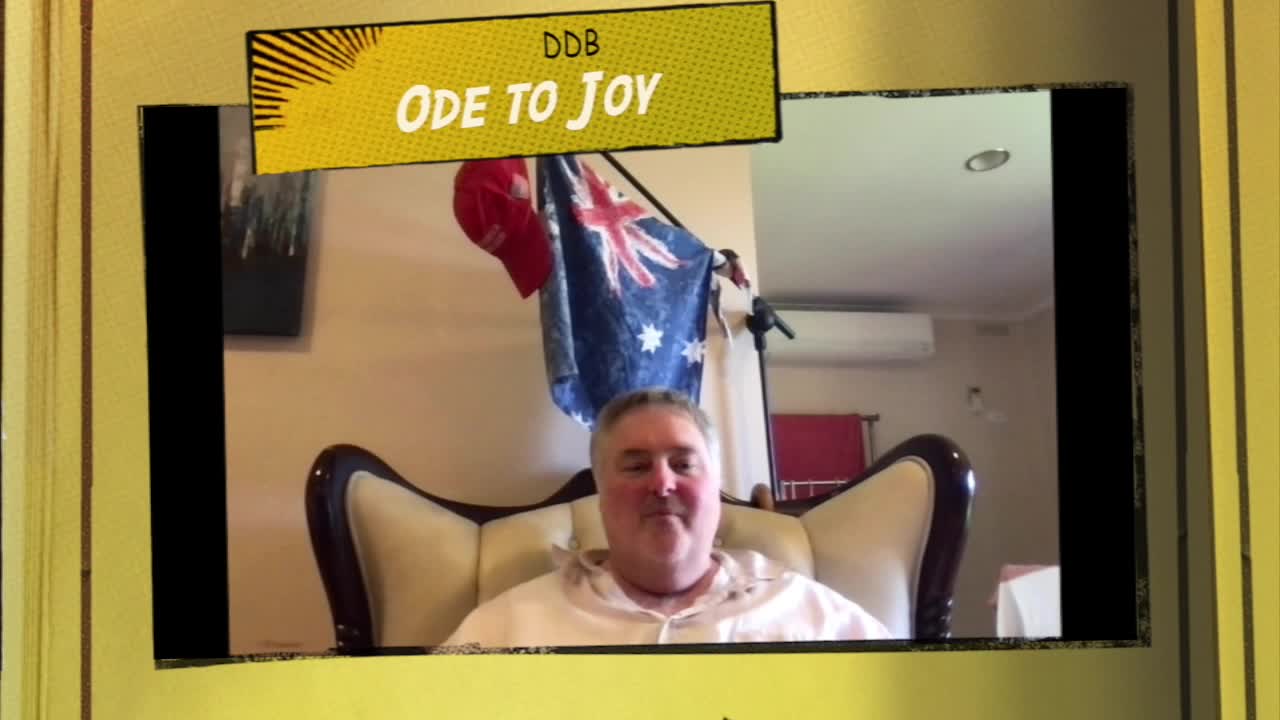Premium Only Content

A deaf Musician's Magnum Opus
Beethoven's Ode to Joy
He had been profoundly deaf for years
Beethoven retired from writing Symphony in 1812, age 42
At age 28, in 1798, Beethoven became aware of tinnitus and growing deafness
At age 32, in 1802, Beethoven wrote of his thoughts of suicide from his growing deafness
At age 42, Beethoven wrote his 8th Symphony and retired from Symphony writing as he was distracted by ill health and family.
On 7th May 1824, Ludwig van Beethoven directed his 9th Symphony. He had been profoundly deaf at this time, and his orchestra was actually directed by another, off stage. Beethoven was a few measures behind come the finale and a young female soloist turned him around so he could see the applause
Oh friends, not these sounds!Let us instead strike up more pleasingand more joyful ones!
Joy!
Joy!
These words echoed his 1806 “"Let your deafness no longer be a secret – even in art."” and “"seize Fate by the throat; it shall certainly not crush me completely"”
Ode to Joy has become Europe’s official anthem.
The ninth Symphony of Beethoven was the first to use voices as instruments, rather than narrative.
Giuseppe Verdi, 1878 “The alpha and omega is Beethoven's Ninth Symphony, marvellous in the first three movements, very badly set in the last. No one will ever approach the sublimity of the first movement, but it will be an easy task to write as badly for voices as in the last movement. And supported by the authority of Beethoven, they will all shout: "That's the way to do it..."” Did Verdi miss that the instrument Beethoven used, the voice, was different to other musical instruments?
https://voiceddb.locals.com/post/2204775/about-the-deaf-musicians-greatest-work
-
 5:25
5:25
Faith and Philosphy
6 days agoA Miracle He made
273 -
 6:22
6:22
PapaiUrsoBr
3 years agoDESTINY 2 │ PRECURSORA PISTOLA EXÓTICA MAGNUM OPUS
3 -
 0:58
0:58
Grasshopperturbo
3 years ago360 Magnum
55 -
 2:03:18
2:03:18
TimcastIRL
13 hours agoBiden Special Counsel Audio LEAKS His Brain Was FRIED Democrats COVERED IT UP | Timcast IRL
679K159 -
 1:18:49
1:18:49
Man in America
17 hours agoEXPOSED: Big Pharma’s Sinister Takeover of the Cannabis Industry w/ Inesa Ponomariovaite
71.5K29 -
 1:26:25
1:26:25
FreshandFit
14 hours agoThe Current State Of The Manosphere w/ Rollo Tomassi
112K25 -
 2:50:39
2:50:39
I_Came_With_Fire_Podcast
22 hours agoCOMEY GOING TO JAIL | CHINESE KILL SWITCHES | BIRTHRIGHT CITIZENSHIP
56.1K16 -
 3:54:07
3:54:07
SynthTrax & DJ Cheezus Livestreams
1 day agoFriday Night Synthwave 80s 90s Electronica and more DJ MIX Livestream AI ART SHOWCASE Edition
78.1K9 -
 2:21:34
2:21:34
TheSaltyCracker
13 hours agoThreatening Trump is Bad Idea ReeEEEStream 05-16-25
174K273 -
 4:08:03
4:08:03
Saycred Angel Live
12 hours ago🍻FRIDAY FAMILY FIGHT NIGHT🍻!TANGIA | !GIVEAWA
67.8K4